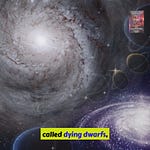Coup d'état: The Artifice of Law: A Deconstruction of Legal Fictions
They howl,
from towers of glass and screens
of fleeting light,
of an "insurrectionist invasion".
Their voices,
amplified by wires and algorithms,
paint the migrant,
the gente de color,
as the unnamed, un-nationed threat.
They claim
the high ground of legality,
a loi they say is immutable,
transcendent, born of pure reason.
But look closely,
hermanxs,
look past the shimmering veil
of their official pronouncements.
Their law, su ley,
is a performance,
a "species of legal invention" that,
like the ancient fictions,
"conceals, or affects to conceal,
the fact that a rule of law
has undergone alteration,
its letter remaining unchanged,
its operation being modified".
They speak of "order"
and "stability",
but their very words are
"a deliberate distortion of reality",
a strategic "re-description of facts"
to justify an outcome
"not always already known".
This is not the "tentative cognition"
that enables growth
and justice,
but a "pernicious legal fiction"
that "inflict[s] damage"
and facilitates theft—
the theft of dignity,
of life, of a futuro.
Kelsen,
the meticulous cartographer of norms,
might whisper from his own valle
of legal theory that
"logic is powerless in the normative realm".
Their supposed loi
is not a "statement"
of truth, but the
"meaning of an act
which prescribes something",
an act of will,
disconnected from "reason".
When they declare an "invasion"
that is not,
it is "not a process of thought"
but "an act of will",
a "false assertion of the privileged kind"
masquerading as objective truth.
Their "Grundnorm,"
that supposed basic norm
underpinning their system,
is "a fiction,"
"uttered with the knowledge
that reality does not agree with it".
It's a "dream version,
the version that one has
a right to and that,
in the frustration of this right,
victimises one again and again".
Deleuze,
the philosopher of perpetual movimiento,
would expose their grand
pronouncements as "abstract,"
"ineffective," "axiomatic"
human rights discourse,
a "pure abstraction, empty"
when faced
with the "concrete situations"
and "modes of existence"
of those they condemn.
"You invoke human rights,"
he would mock,
"what does that mean?
It means,
'Ah, [you] Turks have no right
to massacre Armenians'".
So too,
they invoke the law,
but for the purpose of massacre,
of deshumanización.
Their "totalising spirit",
their "transcendent categories
of judgment",
are a "real obstacle
to the functioning
of the constructive system".
They are the ones
"tearing the essentialist democracy
of coercion down",
but in the guise
of "legal fictions".
They use the "deeming” provision,
saying an X
is "deemed to be a Y” —
a migrant deemed
an invader,
a family deemed a threat.
This is the
"highly artificial structure" of law,
built to "foreclose any opportunity
for extension" of justice
to the marginalized.
They use law's
very language to
"mis-describ[e] the facts",
preferring "judicial prevarication
over judicial activism",
all to "produce what seems
to be the right result
as a matter of justice,
equity, or policy
when the literal
or non-fictional application
of an existing rule
would produce injustice".
But their verdad
is a hollow drum.
The "legal falsehoods"
they speak are
"not only, on the traditional account,
fill[ing] the law with falsehood,
it also ensnares it
in logical contradiction".
They accuse others
of "insurrection,"
yet it is their own praxis
that is a "coup d'etat",
a "disabling of the people"
through the "arbitrary decrees"
of executive power,
"unbounded by norms
and without spirit".
Carl Schmitt,
the very architect
of such thought,
identified "legality"
itself as "the very antithesis
of legitimacy".
Their "value-neutral,
functionalist
and formal concept of law”
is "without substance or reference points",
designed to allow
their political enemies
to be "reduced to kicking their boots
against the locked door".
Yet,
the ancestral cartographies
of the sufriendo cannot be erased.
The "embodied memory"
of those who cross the frontera,
the generational hauntings
of Zoot Suiters and undocumented laborers,
forge new "lines of flight".
This is the true jurisprudence,
"the philosophy of law
proceeding by singularities,
extension of singularities".
It is the "invention of right",
the "creative modification
of existing legal principles
or the invention
of new ones
to fit particular cases".
Listen to this episode with a 7-day free trial
Subscribe to TezTalks! Substack to listen to this post and get 7 days of free access to the full post archives.













